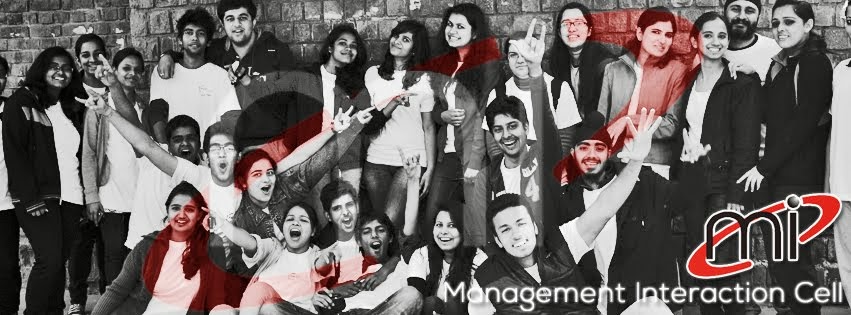- ANUSHKA NEGI
Our
mind goes into the ‘sleep-mode’ or rather the ‘indifferent-mode’ whenever the
topic, learning is brought up. The ‘learning by thinking’ concept might seem to
be a very recent and a rare one; but in verity it is being practiced by
one-and-all. Let us all rewind a bit and go back to 29th
September,’14, to Narendra Modi’s compelling and striking speech. How many of us replayed
the speech in our minds again-and-again and planned (at least) to participate
in any one of the cleanliness campaigns around the city? Is this awakening not
learning? It certainly is.
The
difference between the terms thinking and reflection is that the latter has a
sense of judgment (though we often use them interchangeably). Where thinking
can happen anytime, reflection only happens after something done, said or
thought.
Does
reflecting upon one’s performance help in improving it? Yes it certainly does. Speaking
of a professional environment, reflecting upon your day’s performance,
evaluating it, finding the loopholes in it and devising a newer and a better
plan of action evidently helps. This does not apply only to the working class.
It holds an equal importance in the life of students.
In
today’s times, studying and playing are not the only elements in a college- or
a school-goer’s life. Where on one hand they try to be actively involved in the
extra-curricular activities in their respective colleges or schools, on the
other they also try catching up with the latest episode of Sherlock or Modern
Family (or Game of Thrones). The minds of the youth are more occupied than ever
before. There is so much to do, and they want to do it all. This leaves a very
little or rather no scope for any kind from introspection or reflection.
Here
are some useful tips which will certainly help you to reflect more -
Ø Read More – It is a well known and appreciated fact that reading helps
in rejuvenation and provides food for thought. But two things. Firstly, reading
anything does not help much. Try something which will satisfy the intellectual
you. Secondly and most importantly, reading alone is not sufficient; try
reflecting upon what you have read. Though it sounds very clichéd, try learning
something from each book that you pick. George Bush has rightly said, “Reading
is the basics for all learning.”
Ø Be Optimistic – Your optimistic mind and thoughts (the positive
ones) help each other. Where optimism facilitates positive thoughts, a better
thought structure leads to optimism. Optimism in thoughts helps in
introspecting and reflecting better, as in we are able to point out our
mistakes (on the professional and mental front) and try to correct them. This
helps in improving our performance the next time we try our hand at the same
activity.
Ø Do What You Like – Studying engineering when you are a
born photographer or studying finance when you want to be an actor (all of us
are 3 Idiots fans) is quite pointless and worthless. Doing what you really love
rejuvenates and brightens your thoughts. You end up planning all day how to go
about your particular field, thinking of new innovations, and have your own
perfect ideals from the particular field. I’ll take my example: I am a business
studies student and took it up because I really wanted to. Off late, I have been
making plans (and that is all I do) about having my own start up. I’d like to quote Mr. Ranchhoddas,” kya hota
agar Lata Mangeshkar ke papa use bolte ke tu fast bowler banja?”
Ø Have Healthy Discussions – Having a healthy discussion (or a
debate) with your peers always helps, provided it is something informative.
Where a discussion regarding why a contestant in Bigg Boss has white and green
hair would hardly benefit anyone; debating on what Boko Haram is doing or
Bilawal Bhutto is saying will not only help in elevating your knowledge levels
but also feed your mind with better topics to think of.
Well the points listed above are not
exhaustive (they can never be), one needs to devise their own methods of
improving as a person and a professional. Where learning from thinking is quite
elementary, improving performance through reflection and introspection is
difficult.
And as Confucius, the Chinese
philosopher has rightly said, “Learning without thought is labor lost, thought without
learning is perilous.”
